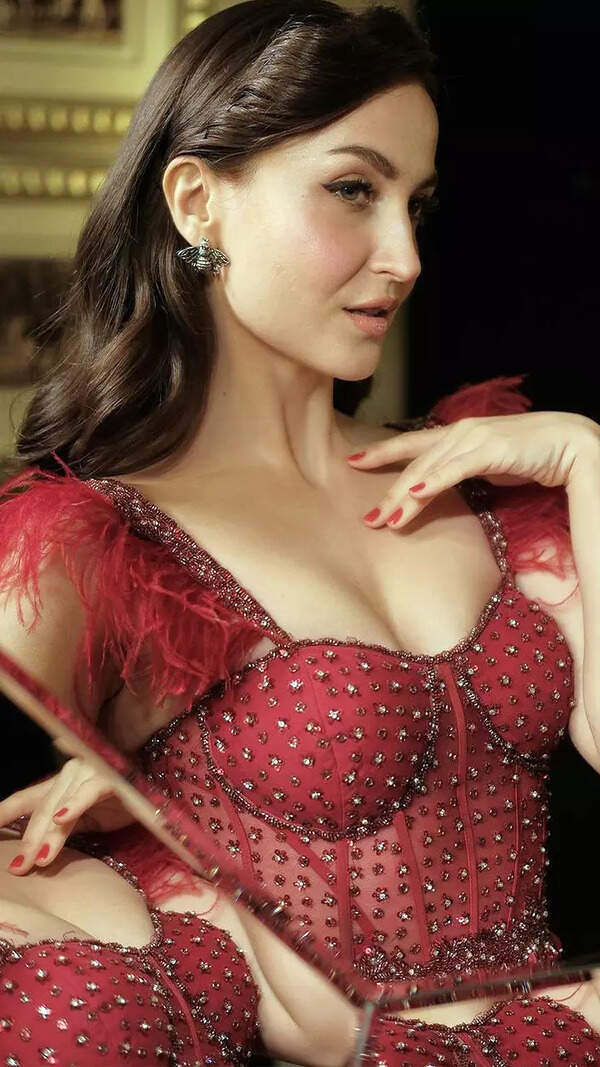- News
- entertainment
- regional
- "Love from one's audience is the most important thing for a singer"
Trending
This story is from May 22, 2015
"Love from one's audience is the most important thing for a singer"
Aarti Mukherji is among the most popular playback singers of the yesteryear, who sang for more than 100 films in six languages - Hindi, Bengali, Assamese, Manipuri, Gujarati and Odia.

BHUBANESWAR: Aarti Mukherji is among the most popular playback singers of the yesteryear, who sang for more than 100 films in six languages - Hindi, Bengali, Assamese, Manipuri, Gujarati and Odia. She lent her voice to some evergreen Odia hits that are still popular among the masses. She was recently awarded the Sangeet Sudhakar Balakrushna Das Samman-2015.In an interview with Minati Singha, the singer went down the memory lane and shared her views on the contemporary music scene
Q: What are your thoughts on receiving the award and coming to Odisha to recall old connections?
A: It's absolutely beautiful. When they approached me, I accepted the invitation immediately. I sang my first Odia song in 1964 and over the years, the connections have become stronger. It is a great honour to get this award in the name of Sangeet Sudhakar Balakrushna Dash, who was a musical legend.
Q: You have sung many compositions of Balakrushna Dash. What was the speciality of his music?
Q: Who were the other Odia music directors you worked with?
A: I sang for Raghunath Panigrahy, he was an amazing composer. I also worked with singers like Akshay Mohanty, Sikandar Alam, and Pranab Patnaik. They all were very talented people and great friends.
Q: What is the difference between singers of your time and now?
A: There is no doubt that today's singers are equally talented but they are becoming slaves of technology. We used to practise a song for three to four days before recording and sang the whole song in a single take. Nowadays, singers sing a single line, that too with many filters and retakes. I feel songs are delicate like flowers and we used to get immense satisfaction after singing them. The singer's feelings are missing in today's songs.
Q: Your song 'Do naina aur ek kahani' from the film Massom, composed by R D Burman, has become a cult song and is still popular among music lovers. But today's songs don't have such impact. Why?
A: The type and style of song has changed. In our times, there were no 'item songs' and the lyrics were very powerful. Besides, you cannot expect to create something evergreen like the works of Salil Chaudhury, R D Burman, Laxmikant Pyarelal, Kalyanji Anandji or Balakrushna Dash.
Q: Why did you quit singing at the peak of your career?
A: Mumbai is a very professional place and it is very difficult to compete. I had to choose between a career and family. I advise women to find a balance between work and family instead of getting emotional, though it is very difficult.
Q: Your advice to new-age singers?
A: Artists have tremendous energy but they are losing it in the haze of marketing, which has become more important. Love from one's audience is the most important thing for any singer.
Q: What are your thoughts on receiving the award and coming to Odisha to recall old connections?
A: It's absolutely beautiful. When they approached me, I accepted the invitation immediately. I sang my first Odia song in 1964 and over the years, the connections have become stronger. It is a great honour to get this award in the name of Sangeet Sudhakar Balakrushna Dash, who was a musical legend.
Q: You have sung many compositions of Balakrushna Dash. What was the speciality of his music?
A: His songs are sweet and melodic. He used to compose songs based on various ragas, thumris and khayal because of which they were so poignant, touching and popular. Some of the popular songs were 'Dele dhara katha sare' and 'Kie dakere sudure' Since these songs were recorded in Kolkata, I did not know that they were so popular here.
Q: Who were the other Odia music directors you worked with?
A: I sang for Raghunath Panigrahy, he was an amazing composer. I also worked with singers like Akshay Mohanty, Sikandar Alam, and Pranab Patnaik. They all were very talented people and great friends.
Q: What is the difference between singers of your time and now?
A: There is no doubt that today's singers are equally talented but they are becoming slaves of technology. We used to practise a song for three to four days before recording and sang the whole song in a single take. Nowadays, singers sing a single line, that too with many filters and retakes. I feel songs are delicate like flowers and we used to get immense satisfaction after singing them. The singer's feelings are missing in today's songs.
Q: Your song 'Do naina aur ek kahani' from the film Massom, composed by R D Burman, has become a cult song and is still popular among music lovers. But today's songs don't have such impact. Why?
A: The type and style of song has changed. In our times, there were no 'item songs' and the lyrics were very powerful. Besides, you cannot expect to create something evergreen like the works of Salil Chaudhury, R D Burman, Laxmikant Pyarelal, Kalyanji Anandji or Balakrushna Dash.
Q: Why did you quit singing at the peak of your career?
A: Mumbai is a very professional place and it is very difficult to compete. I had to choose between a career and family. I advise women to find a balance between work and family instead of getting emotional, though it is very difficult.
Q: Your advice to new-age singers?
A: Artists have tremendous energy but they are losing it in the haze of marketing, which has become more important. Love from one's audience is the most important thing for any singer.
End of Article
FOLLOW US ON SOCIAL MEDIA









